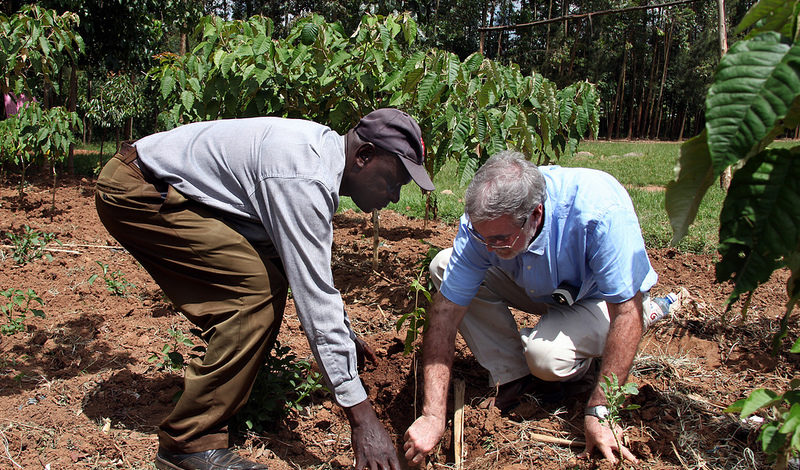The Unitarian Universalist Service Committee advances human rights through grassroots collaborations.
Reflecting on Impact in Kenya

January 17, 2013
With the holidays behind us, I finally have time to report a bit on my recent trip to Kenya for UUSC in which we visited four partner groups: the Kakamega Grassroots Initiative, the SoilFarm Multi-Culture Group (which runs the renowned Hope in Crops program), the Kenya National Alliance of Street Vendors and Informal Traders (KENASVIT), and Rock Women.
We met with leaders of Kenyan civil society concerning the recently adopted new constitution and the upcoming April national elections. I delivered a lecture on human rights and terrorism at the University of Nairobi. And Martha Thompson, manager of UUSC’s Rights in Humanitarian Crises Program, and I even managed to slip in a visit to Karen Blixen’s home at the foot of the Ngong Hills made famous in Out of Africa.
The breadth of impact we and our Kenyan partner groups are having is remarkable. The Kakamega Grassroots Initiative (KGI), for example, is supporting women widowed and displaced by the 2007 election-related violence, offering them trauma support and seeding their small businesses. With another election on the horizon, KGI is similarly investing in and training youth to run their own small market businesses on the theory that, since young people are often bribed to cause tribal mayhem in marketplaces in connection with elections, they will be less motivated to do so if they have businesses of their own that would be vulnerable to disruption in the event of violence.
Or take KENASVIT, which UUSC helped launch a number of years ago. The “informal sector” accounts for an astonishing 80 percent of Kenya’s gross domestic product, but before KENASVIT came into existence, street vendors and hawkers were utterly at the mercy of the authorities who often had little sympathy for their needs. Beginning with 200 vendors, KENASVIT has grown to represent 15,000, winning numerous concessions regarding such things as working conditions, harassment by police, basic sanitation, etc.
And this is to say nothing about the SoilFarm Multi-Culture Group’s planting of 80,000 trees, including in schools where they serve to educate the students about the value of rain forest and counter the illegal harvesting of trees in the Kakamega National Forest. And there is also Rock Women’s efforts to end trafficking of girls or stop discrimination against Somali refugees whom the authorities stereotypically assume, given the conflict between Kenya and Somalia, are active in the al Qaeda-affiliated al-Shabaab.
A rewarding, if exhausting trip — but one that made me even prouder to be part of UUSC!

